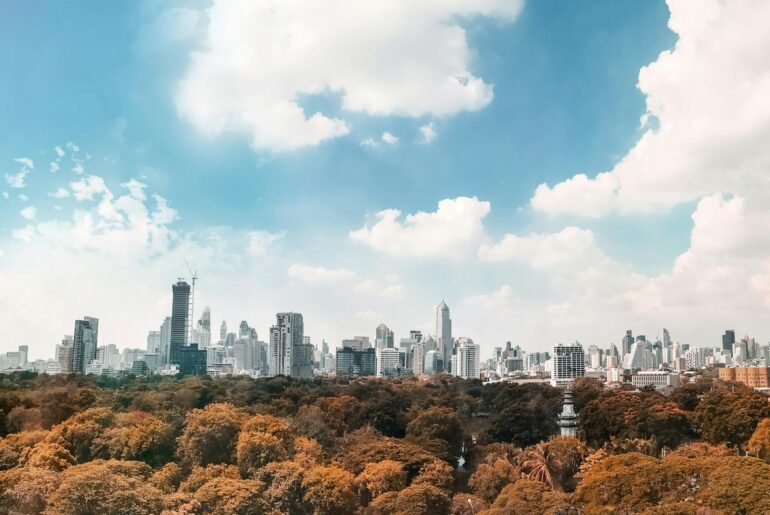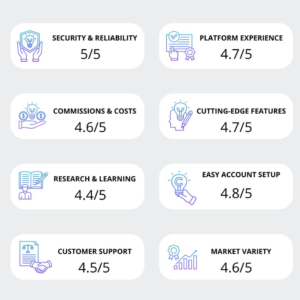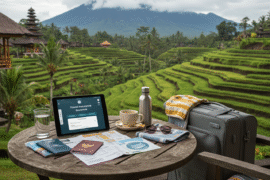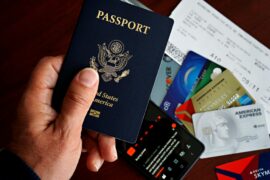This article may contain references to products or services from one or more of our advertisers or partners. We may receive compensation when you click on links to those products or services. Nonetheless, our opinions are our own.
The information presented in this article is accurate to the best of our knowledge at the time of publication. However, information is subject to change, and no guarantees are made about the continued accuracy or completeness of this content after its publication date.
As you plan your next adventure, the allure of Thailand may beckon with promises of stunning landscapes, vibrant culture, and warm hospitality. However, recent developments indicate that this tropical paradise is tightening its grip on tourism. In the wake of global shifts and a surge in visitor numbers, Thailand is set to implement new measures to regulate tourist access. You might wonder how these changes affect your travel plans and what they mean for the quintessential Thai experience. We’ll explore the reasons behind Thailand’s decision, the potential impact on visitors like you, and how to navigate this evolving landscape as you consider your next trip to one of Southeast Asia’s most beloved destinations.
- Understanding the Recent Changes in Thailand’s Tourist Regulations
- The White Lotus Effect: How Pop Culture is Shaping Thai Tourism
- Navigating Visa Requirements for a Smooth Travel Experience
- How to Prepare Financially for Your Trip to Thailand
- Exploring Alternative Destinations: Beyond The White Lotus
- Tips for Responsible Tourism in Thailand Amid New Restrictions
- Embracing Cultural Sensitivity: A Guide for Travelers
-
Frequently Asked Questions
- What recent changes is Thailand implementing for tourists?
- Why is Thailand taking these measures now?
- How might these changes affect travelers planning to visit Thailand?
- What are the intended benefits of these restrictions?
- Are there any specific destinations that will be affected?
- How should travelers prepare for these changes?
- Will these changes deter people from visiting Thailand?
- Recommended Reads
Understanding the Recent Changes in Thailand’s Tourist Regulations
Recent updates in Thailand’s tourist regulations may impact how easily you can explore this vibrant nation. Suppose you’ve been dreaming of sipping coconut water on a Phuket beach or navigating the bustling streets of Bangkok. In that case, you must familiarize yourself with these changes to avoid surprises on your journey. Key adjustments to regulations include:
-
Increased visa submission scrutiny: Authorities are now more meticulous in evaluating visa applications, emphasizing travel purpose, funds, and itinerary.
-
Health and safety protocols: Expect stricter health checks at entry points, which may include vaccinations and COVID-19 testing requirements.
-
Extended processing times: Plan, as visa processing may take longer than usual with the new regulations.
It’s crucial to stay informed and prepare accordingly. Before booking your trip, you may want to consult government websites or trusted travel advisory sources for the latest updates. Extra planning can go a long way in ensuring your Thai adventure is smooth and enjoyable.
The White Lotus Effect: How Pop Culture is Shaping Thai Tourism
The buzz around Thailand as the setting for Season 3 of HBO’s The White Lotus is already making waves in the travel world. As fans anticipate lavish resort scenes and cinematic coastlines, travel demand for Thai destinations like Phuket, Koh Samui, and Bangkok has started to spike.
This trend mirrors what happened in Italy and Hawaii after previous seasons aired. Luxury resorts rumored to be featured in the upcoming season are reporting an uptick in inquiries, with travel agencies noting increased demand for high-end experiences. And while the show may inspire wanderlust, it indirectly contributes to the Thai government’s decision to tighten tourism regulations.
Thailand’s tourism ministry has expressed concerns about overtourism and environmental degradation in popular destinations. The government is implementing stricter visa procedures, limiting tourist numbers at national parks, and encouraging sustainable travel practices—all to maintain the country’s cultural and ecological integrity as global interest rises.
If you’re planning a White Lotus-inspired getaway, it’s wise to book early, stay informed about visa requirements, and explore local experiences that are not commonly available. That way, you can enjoy the beauty of Thailand without the crowds—and with a lighter environmental footprint.
As travel requirements shift, particularly in popular destinations like Thailand, understanding the latest visa regulations is more critical than ever. Imagine arriving at the airport only to discover that you’ve overlooked essential paperwork. To avoid potential headaches, familiarize yourself with the requirements specific to your nationality. Here are some key points to consider:
-
Visa types: Determine if you need a tourist visa, a non-immigrant visa, or if you qualify for a visa exemption.
-
Duration of stay: Check how long you can stay on your visa and whether extensions are available.
-
Health regulations: Be aware of any health-related entry requirements, such as vaccinations or testing.
-
Documentation: Prepare necessary documents such as proof of onward travel, accommodation bookings, and financial statements.
| Visa Type | Duration | Notes |
|---|---|---|
| Visa Exemption | 30 days | Available for many nationalities |
| Tourist Visa | 60 days | Can be extended for an additional 30 days |
| Non-Immigrant Visa | 90 days | For job seekers or long-term stays |
By preparing in advance and considering these factors, you can ensure a smoother journey to the Land of Smiles. Understanding the nuances of visa requirements not only saves you money but also enhances your overall travel experience.
Voted "Best Overall Budgeting App" by Forbes and WSJ
Monarch Money helps you budget, track spending, set goals, and plan your financial future—all in one app.
Get 50% OFF your first year with code MONARCHVIP
How to Prepare Financially for Your Trip to Thailand
Maintaining your finances is crucial for a smooth travel experience when planning a trip to Thailand. First, it’s essential to establish a budget that encompasses all potential expenses such as accommodation, food, transportation, activities, and souvenirs. To help you visualize your expenses, consider breaking down your budget into categories:
| Category | Estimated Cost (per day) |
|---|---|
| Accommodation | $20–$100 |
| Food | $10–$30 |
| Transportation | $5–$15 |
| Activities | $10–$50 |
| Miscellaneous | $5–$20 |
In addition to budgeting, remember that cash is often preferred in many places around Thailand. It’s advisable to exchange some currency before arrival or withdraw money from local ATMs, as they usually provide better exchange rates. Also, consider keeping a little extra on hand for entrance fees and tips, which are common in the service industry. To make the most of your funds, track your spending throughout your trip to avoid overspending and stay within your budget.
Exploring Alternative Destinations: Beyond The White Lotus
If you’re considering alternatives to once-lavished getaways that have surged in popularity post-The White Lotus, you’re not alone. With Thailand tightening its tourism regulations, it’s the perfect time to explore lesser-known gems that offer unique experiences without overwhelming crowds. Here are some destinations that might pique your interest:
-
Vietnam: Discover Ha Long Bay’s breathtaking landscapes or Hoi An’s rich history.
-
Laos: Experience the tranquility of Luang Prabang, with its stunning waterfalls and spiritual temples.
-
Malaysia: Enjoy the vibrant street food scene in Penang and the lush jungles of Borneo.
-
Philippines: Immerse yourself in the pristine waters of El Nido or unwind on the breathtaking beaches of Boracay.
Each place offers a different cultural tapestry and vibrant activities that can make your travels genuinely memorable. Rather than follow the typical tourist trail, consider the benefits of choosing less populated locales:
| Destination | Unique Experience |
|---|---|
| Vietnam | Culinary adventures in local markets |
| Laos | Yoga retreats along the Mekong River |
| Malaysia | Diverse cultural festivals year-round |
| Philippines | Snorkeling among vibrant coral reefs |
Don’t just follow the crowd—these stunning and less-traveled paths promise not only amazing sights but also a deeper connection to the cultures that thrive there. Each destination carries its own charm and invites you to explore unfiltered and authentic experiences.
Tips for Responsible Tourism in Thailand Amid New Restrictions
As you navigate Thailand’s new landscape of tourism, it’s vital to embrace a mindset of responsibility and respect. Here are some essential practices to keep in mind:
-
Research local customs: Familiarize yourself with Thai culture, traditions, and etiquette. Understanding how to behave in temples and local communities can enhance your experience and foster positive interactions.
-
Opt for eco-friendly options: Choose accommodations and activities that prioritize sustainability. Look for places that minimize waste and invest in local habitats.
-
Support local businesses: Rather than international chains, seek out local eateries, artisans, and markets. This not only enriches your experience but also boosts the local economy.
-
Respect wildlife: Avoid attractions that exploit animals for entertainment. Instead, support responsible wildlife sanctuaries and conservation efforts.
Additionally, be mindful of your environmental footprint while traveling. Consider using public transportation or renting a bicycle to explore your surroundings. Respectfully engaging with the local community will not only enhance your trip but also contribute to a sustainable tourism model that benefits everyone.
Embracing Cultural Sensitivity: A Guide for Travelers
When traveling to Thailand, embracing the country’s rich culture and traditions is essential to making the most of your experience. Immersing yourself in local customs enhances your trip and fosters a deeper connection with the people and places you visit. As a traveler, it’s essential to keep a few key aspects in mind:
-
Respect local customs: It is paramount to show respect for traditions, whether by dressing modestly when visiting temples or participating in local festivals.
-
Learn basic phrases: A simple “hello” or “thank you” in Thai can go a long way, demonstrating your effort to connect with locals.
-
Understand social cues: Be mindful of body language and etiquette. For example, avoiding touching someone’s head is crucial, as it is considered sacred.
To further aid your journey, here’s a quick reference table highlighting essential cultural dos and don’ts for tourists in Thailand:
| Dos | Don’ts |
|---|---|
| Dress appropriately in temples | Disrespect the royal family |
| Remove shoes before entering homes and temples | Point your feet at people or religious objects |
| Practice gratitude toward hosts and locals | Engage in public displays of affection |
By embracing these cultural sensitivity guidelines, your time in Thailand can be significantly enriched, allowing for meaningful interactions and unforgettable memories. As you move through bustling streets and serene temples, remember that every encounter is a prospect to learn and grow.
Frequently Asked Questions
What recent changes is Thailand implementing for tourists?
Thailand is introducing new measures to regulate tourist access and manage the impact of mass tourism on its environment and local culture. These include stricter visa policies, fee adjustments, and potential entry restrictions on certain popular destinations.
Why is Thailand taking these measures now?
The shift comes in response to growing concerns over the adverse effects of overtourism, such as environmental degradation, cultural dilution, and strain on local resources. The government aims to balance tourism development with preserving its natural and cultural heritage.
How might these changes affect travelers planning to visit Thailand?
Travelers may find securing entry into certain areas more challenging, particularly iconic tourist hotspots. They could face increased costs related to visa applications or entrance fees and potentially longer processing times.
What are the intended benefits of these restrictions?
The measures aim to safeguard Thailand’s natural beauty and cultural integrity, ensuring visitors and locals enjoy a sustainable tourism experience. By managing the flow of tourists, the government hopes to provide a more authentic experience that benefits local communities.
Are there any specific destinations that will be affected?
Highly visited sites—especially those experiencing environmental strain—may see more stringent entry regulations. These could include islands, national parks, and other high-traffic tourist areas.
How should travelers prepare for these changes?
Travelers must stay updated on visa requirements and potential fees before planning their trips. They may also want to consider alternative destinations within Thailand that are less impacted by tourism and engage respectfully with local cultures.
Will these changes deter people from visiting Thailand?
While some travelers may be discouraged by increased restrictions, others may welcome the opportunity to explore Thailand more sustainably and meaningfully. The long-term environmental and local community benefits could ultimately enhance the travel experience.

Reviewed and edited by Albert Fang.
See a typo or want to suggest an edit/revision to the content? Use the contact us form to provide feedback.
At FangWallet, we value editorial integrity and open collaboration in curating quality content for readers to enjoy. Much appreciated for the assist.
Did you like our article and find it insightful? We encourage sharing the article link with family and friends to benefit as well - better yet, sharing on social media. Thank you for the support! 🍉
Article Title: White Lotus? Thailand will Make it More Difficult for Tourists to Visit
https://fangwallet.com/2025/04/04/white-lotus-thailand-will-make-it-more-difficult-for-tourists-to-visit/The FangWallet Promise
FangWallet is an editorially independent resource - founded on breaking down challenging financial concepts for anyone to understand since 2014. While we adhere to editorial integrity, note that this post may contain references to products from our partners.
The FangWallet promise is always to have your best interest in mind and be transparent and honest about the financial picture.
Become an Insider

Subscribe to get a free daily budget planner printable to help get your money on track!
Make passive money the right way. No spam.
Editorial Disclaimer: The editorial content on this page is not provided by any of the companies mentioned. The opinions expressed here are the author's alone.
The content of this website is for informational purposes only and does not represent investment advice, or an offer or solicitation to buy or sell any security, investment, or product. Investors are encouraged to do their own due diligence, and, if necessary, consult professional advising before making any investment decisions. Investing involves a high degree of risk, and financial losses may occur including the potential loss of principal.
Source Citation References:
+ Inspo
There are no additional citations or references to note for this article at this time.












































